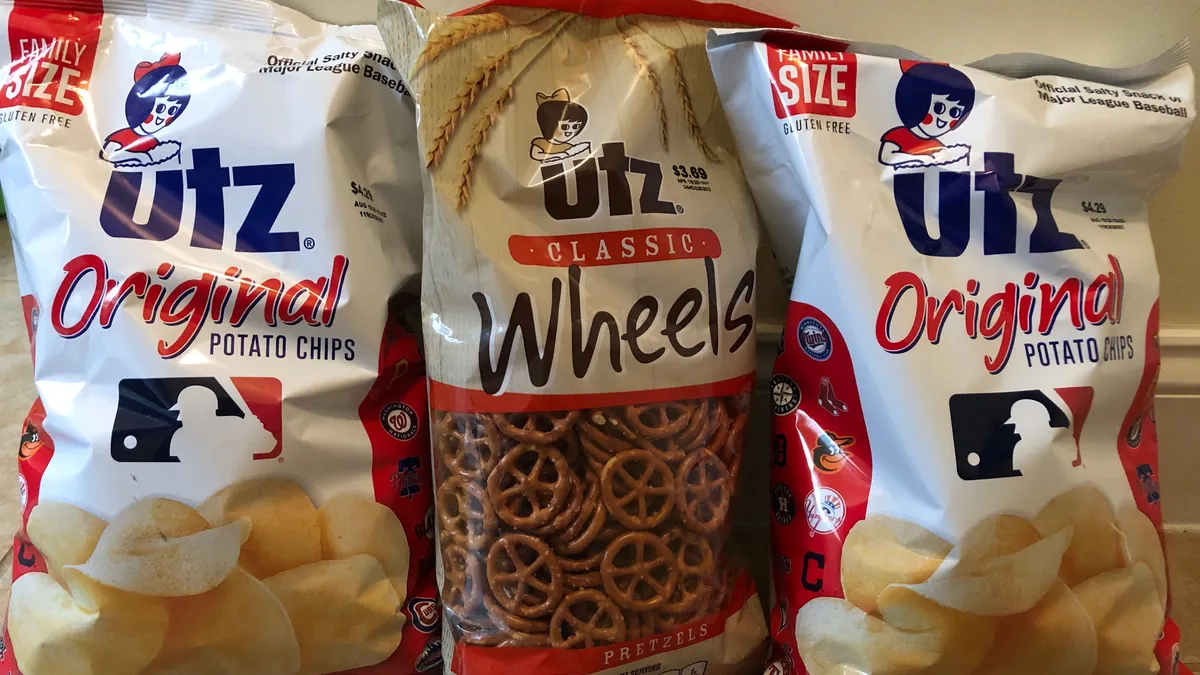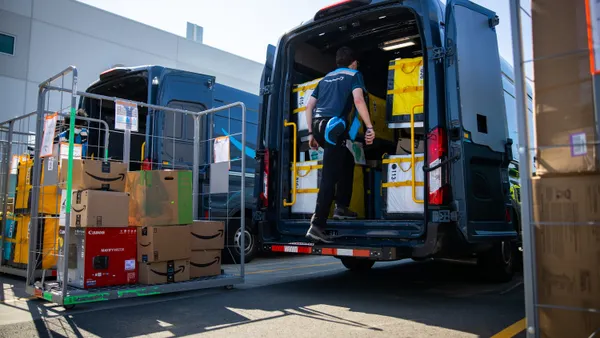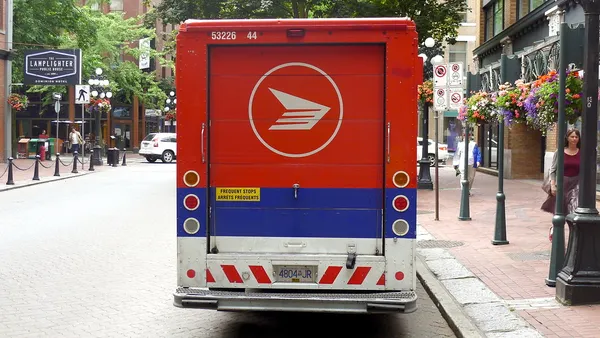Dive Brief:
- Utz has resumed efforts to convert company-owned, direct-store-delivery routes to independent-operator routes, CFO Cary Devore said during an earnings call last week. He said the company expects to convert 200-250 routes this year.
- Utz paused the conversion effort last year for reasons related to the pandemic and Utz's ERP implementation, Devore said, adding the company expects to finish the conversion in the first half of 2022.
- These conversions eliminate some selling costs, such as commission compensation, benefits and other transportation expenses, Devore said. But Utz does pay a sales discount to the independent operators, which is expected to decrease net sales and gross profit, he added, but it should result in higher EBITDA and margins long term.
Dive Insight:
A DSD model is a common strategy for food suppliers of grocery stores, because it often results in shorter transit times. When a company driver runs a DSD route, it can interact with store-level buyers and staff, and drivers often restock the shelves.
Those tasks offer firsthand knowledge of how the store is run, and what issues might surround a product on the sales floor. By hiring independent contractors, Utz relinquishes some of that control. But the strategy is part of Utz's plan for long-term, organic-growth, Devore said, and "helps derisk our business overall."
The cost-benefit analysis of a DSD model, in general, yields different conclusions for different food suppliers. Kellogg and Nestlé, for example, changed to a warehouse model.
"By taking advantage of the unmatched breadth and depth of our existing frozen warehouse network, our retail customer partners can better leverage their existing networks," Steve Presley, CEO of Nestlé USA, said in a statement in May 2019. "This change is a win-win for Nestlé and our customers."
Changing models meant layoffs. Kellogg terminated numerous distributor contracts, while Nestlé anticipated it would lay off roughly 4,000 supply chain and other workers. Utz did not respond to a request for comment by press time on what would become of its payrolled DSD staff.
Mondelez CFO Luca Zaramella, on the other hand, said the company's DSD capabilities gave it an advantage during the early days of the pandemic. Flowers Foods CEO Ryals McMullian told sister publication Food Dive the company had a similar experience during that time, as DSD helped it understand and meet demand.
But Utz has committed to the DSD model, factoring it into its M&A strategy. In 2019, the company acquired Conagra's DSD business. And in January, it announced it was acquiring the Vitner's brand, which has about 55 DSD routes.
Utz's business has a hand in the direct-to-warehouse model, as well. On The Border, which Utz acquired late last year, sells on a DTW basis to its major customers, CEO Dylan Lissette said during the call last week. Utz does plan to integrate On The Border's products into its nearly 1,700 DSD routes over time, he added.
Utz went public last August, and Devore mentioned its DSD conversions on the company's first-ever earnings report in November.













